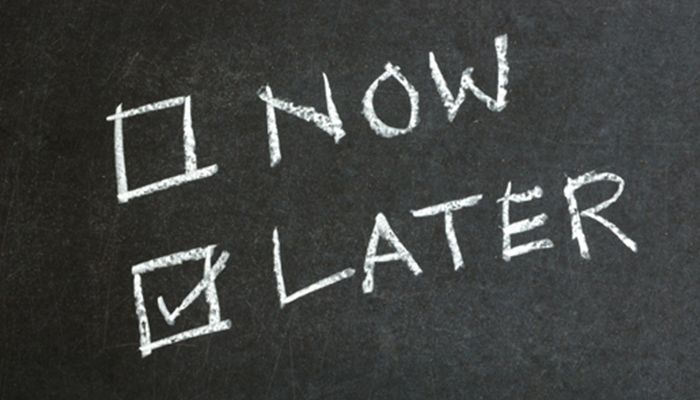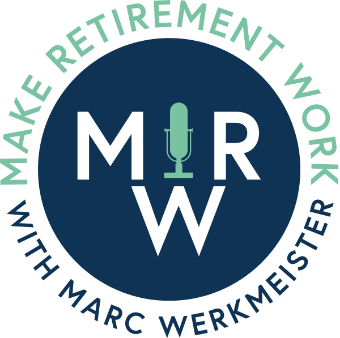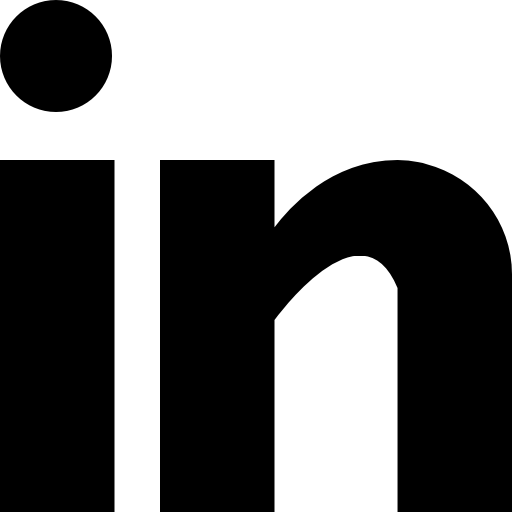
We’re all busy. There is always some new item on our constantly growing to-do lists. Some tasks are fun to take on others are tedious, boring, long or all the above. But some of the most important to-do’s in our lives often get overlooked because — well, let’s face it — they’re not all that fun.
Here is the top four, in declining order. See if you are dragging your feet in any of these areas. If so, quit putting off making the necessary fixes. You will be glad you acted.
The No. 4 most frequent procrastination mistake we see has to do with failure to refinance a mortgage at current lower rates. We spoke to a new client, just a couple weeks ago, who paid north of 6% on a primary home mortgage. With interest rates bouncing on the floor of historic lows these past several years, there is really no reason whatsoever to have an excessively high mortgage rate. Yes, it’s a hassle to apply for a new loan, with a lot of forms to fill out and disclosures to file. So what?
Today, you can easily find rates in the mid-to-low 4’s. (To be sure, be cautious of rate vultures, who tease you with ultra-low rates just to get you in their door, and you end up paying more once the process is over.)
When it comes to mortgages, the numbers are pretty simple. The going rate is the going rate. The spread (or difference) between banks and other lenders is pretty small. One company might charge $250 for closing costs, but their rate might be a tad higher than the lender who charges a higher closing cost, yet carries a lower, long-term rate.
Bottom line: If your mortgage rate is too high, you’re paying too much money and you’re using that money as kindling to light your fire-pit in the back yard. Burning money is bad.
The No. 3 most frequent procrastination mistake we see revolves around overly expensive property and casualty insurance. We recently spoke to a client who was paying $1,600 per year for car insurance. They only have two cars, and they’re not two-door, fire engine red, pedal-to-the-metal sports cars, either.
Almost everybody has to pay for car insurance, so don’t devote much attention to it. You might even think you’re paying a bit too much, but it’s annoying to call your insurance agent to have that discussion.
I personally work with a home and auto coverage company that deals with many different insurance vendors. This means they can pick the lowest cost insurance for my cars, house, rental property, personal articles and office liability. Also, each year, I get a phone call or an email from them (on my anniversary renewal date) letting me know that they shopped around for lower quotes for me with other carriers — and whether there is an opportunity for savings. From there, I just sign any applicable forms and I am done.
The No. 2 most frequent procrastination mistake is not updating estate planning documents. You must do this periodically and without fail. Circumstances change: People get divorced or die or otherwise fall out of your life. Your estate needs to reflect those changes. I get it: This is boring stuff. However, if you don’t have your basic estate planning documents updated and in order, life (and death) can get miserable for you and your family.
The basic documents almost everyone needs are:
- a will,
- a health-care directive, and
- powers of attorney documents.
The will tells your family where your money should go and who should handle it. The health-care directive tells your family and medical professionals how you want your medical matters handled, in the case you cannot respond. The powers of attorney ensure your financial affairs are handled efficiently if you become incapacitated and are unable to make decisions on your own.
If you’re one of the roughly 50% of people who actually have these documents updated and in order, just make sure your powers of attorney docs are specific about what financial matters they govern. In this day and age of strict legal oversight, some financial institutions will not honor a general POA without this specific language.
Finally, the No. 1 most frequent procrastination mistake we see is neglecting to manage your hard-earned money. If someone would give me a nickel for every time we met with someone who had old, dormant 401(k)s, 403(b)s, deferred comp plans, individual retirement accounts, Roth IRAs, tax-sheltered annuities, variable annuities, fixed annuities, individual or joint accounts, trust accounts and other brokerage accounts — all scattered around at different institutions — I could camp out in a La-Z-Boy recliner all day and trade on my own accounts for a living.
Money, investments and retirement planning are more important than your mortgage rate, insurance costs and estate planning combined. Why, you ask? There are two types of loss:
- Loss of opportunity, and
- Loss of money.
The good news is: New opportunities always crop up to invest in something better tomorrow, next week or next month. The bad news is: If you lose your money, now we have no money to invest in tomorrow’s opportunities. You need to ensure your financial house is in order before you can have a properly constructed estate plan. You need to save, grow and protect your money to maximize the savings realized from a lower-cost home or auto insurance policy or a cheaper mortgage rate.
It’s a simple task to consolidate all your old investment accounts into one place where you can diligently watch and manage them. on an ongoing basis. We make it a point to hold our clients’ hands through the process so that it’s fast, easy and painless. Most consolidation projects with new clients take less than 10 business days to complete.
If you’re not sure who to trust with your financial affairs, interview two or three professionals until you get a good feeling of who to work with. Then learn how to read your statements, view your accounts online or check your financial information on your phone (whichever is easiest). Then, don’t be afraid to ask questions.
Money isn’t everything — and it’s certainly not the root of all evil. As my dad always says, “Money can’t buy you happiness, but it sure does make being miserable a whole lot easier to tolerate.”














